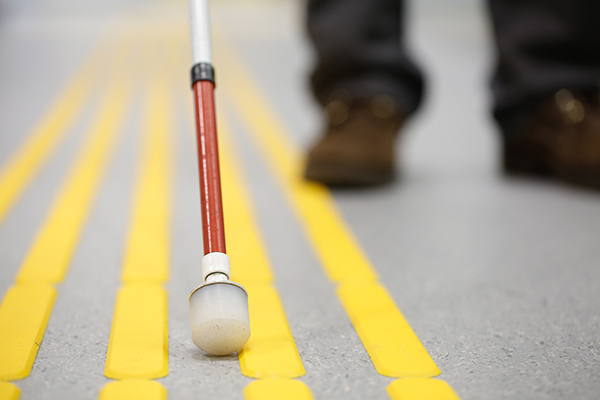Latest News Archive
Please select Category, Year, and then Month to display items
01 October 2019
|
Story Prof Francis Petersen
|
Photo Pixabay

During October, the national focus is on mental health. Mental Health Awareness Month also coincides with a time when our students prepare for the end of the year exams, making it a particularly valuable time for us to think about how we can continuously assist them during their time at university. The value of peer support and genuine care can never be overstressed; that is why I want to encourage our students to reach out to their support networks such as our Department of Student Counselling and Development, as we move towards the end of the year.
Mental health is an equally important matter for our staff. During this month, I want to encourage our staff to also take cognisance of their own well-being. There is a lot of wisdom in the old adage: Healthy body, healthy mind. Many of the initiatives of our Division of Organisational Development and Employee Wellness are focused on the value of physical activity and the negative impact that inactivity can have on one’s productivity and mental health. They also present regular lunch-hour sessions for our staff, where experts share information and practical tips for mental wellness. I want to encourage our staff to attend these sessions and to make use of the services the university has to offer in this regard. It is important to note that suffering from mental and anxiety disorders is not weaknesses and it is not always indicative of a deeper psychological issue; it is an illness and hence can be treated.
On 20 September 2019, a 21-member team was sent off on their run of 1 075 km to Stellenbosch to raise awareness for mental health. The run was organised by the Division of Organisational Development and Employee Wellness and the Faculty of Health Sciences. The team ran in relay format throughout the night and handed the baton of hope to Stellenbosch University on 25 September 2019. I admire and thank them not only for their commitment and stamina, but also for addressing this crucial matter in the public domain and for raising awareness in the many towns and communities along the way.
This is an excerpt from a message by Prof Francis Petersen.

Tactile paving assists visually impaired
2017-10-28

Tactile paving is being installed at pedestrian crossings to assist
visually-impaired persons at the UFS.
Photo: Supplied
Crossing roads and accessing buildings has always been a challenge for people with visual impairments. They had to rely on peripheral sounds, such as car brakes and cues. However, after the installation of tactile paving – paving with special textures assisting the visually impaired to feel the difference between walking around on campus and crossing the road, this will no longer be a problem at the University of the Free State (UFS).
This is one of several developments that University Estates’ Department of Facilities Planning has in the pipeline for 2017 in order to ensure that the university attains its key component in providing a high-quality student experience.
Maureen Khati, Assistant Director of Project Management: Facilities Planning, says, “We saw the need to install these paving blocks in strategic spaces, as identified by the Center for Universal Access and Disability Support (CUADS).” She says these blocks will make it easier for people with visual impairments.
Special features designed to aid visually-impaired persons
These installations have special features that will assist those students and employees with limited vision or blindness to navigate through pedestrian crossings and the different campus buildings. The university chose a unique design of tactile paving that focuses on warning and directing those with visual impairments.
UFS eager to improve accessibility and mobility
The university, and all the stakeholders involved in this initiative, are delighted to be embarking on this project and are looking forward to its successful execution. To improve accessibility and mobility, more accessible entrances and exits will be built, effective signage will be installed inside and outside buildings, but the most important aspect is that dedicated seating space will be made available in lecture rooms for special-needs students.
Khati says, “More focus has been put on installing ramps in all buildings to make them more accessible for people with disabilities, as well as other needs required to enhance accessibility at the UFS.”
For the UFS, this initiative is one of many to come, as extensive research is being done and priorities are implemented accordingly.